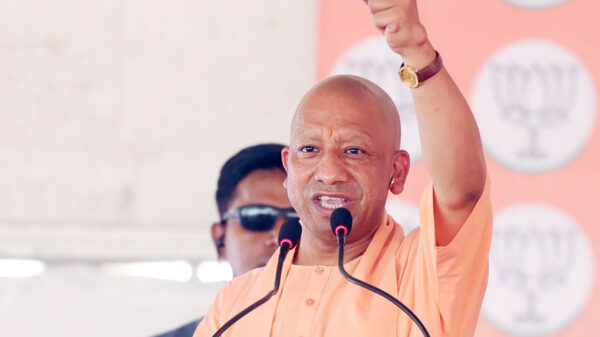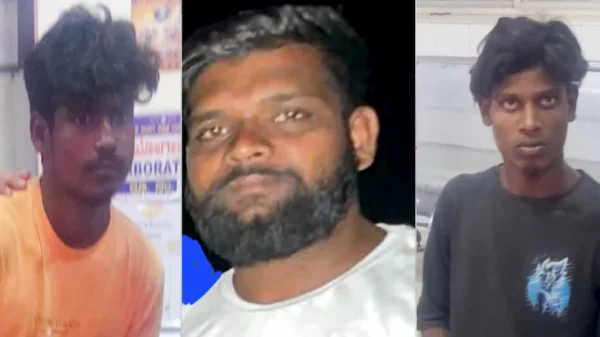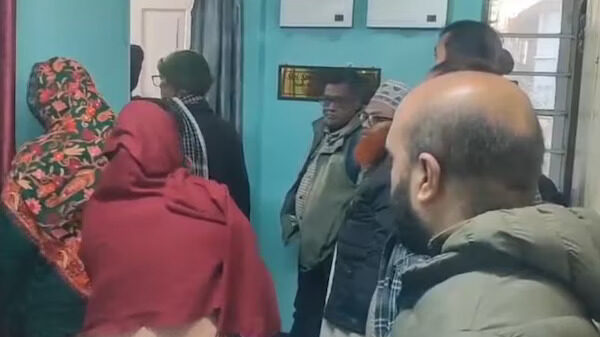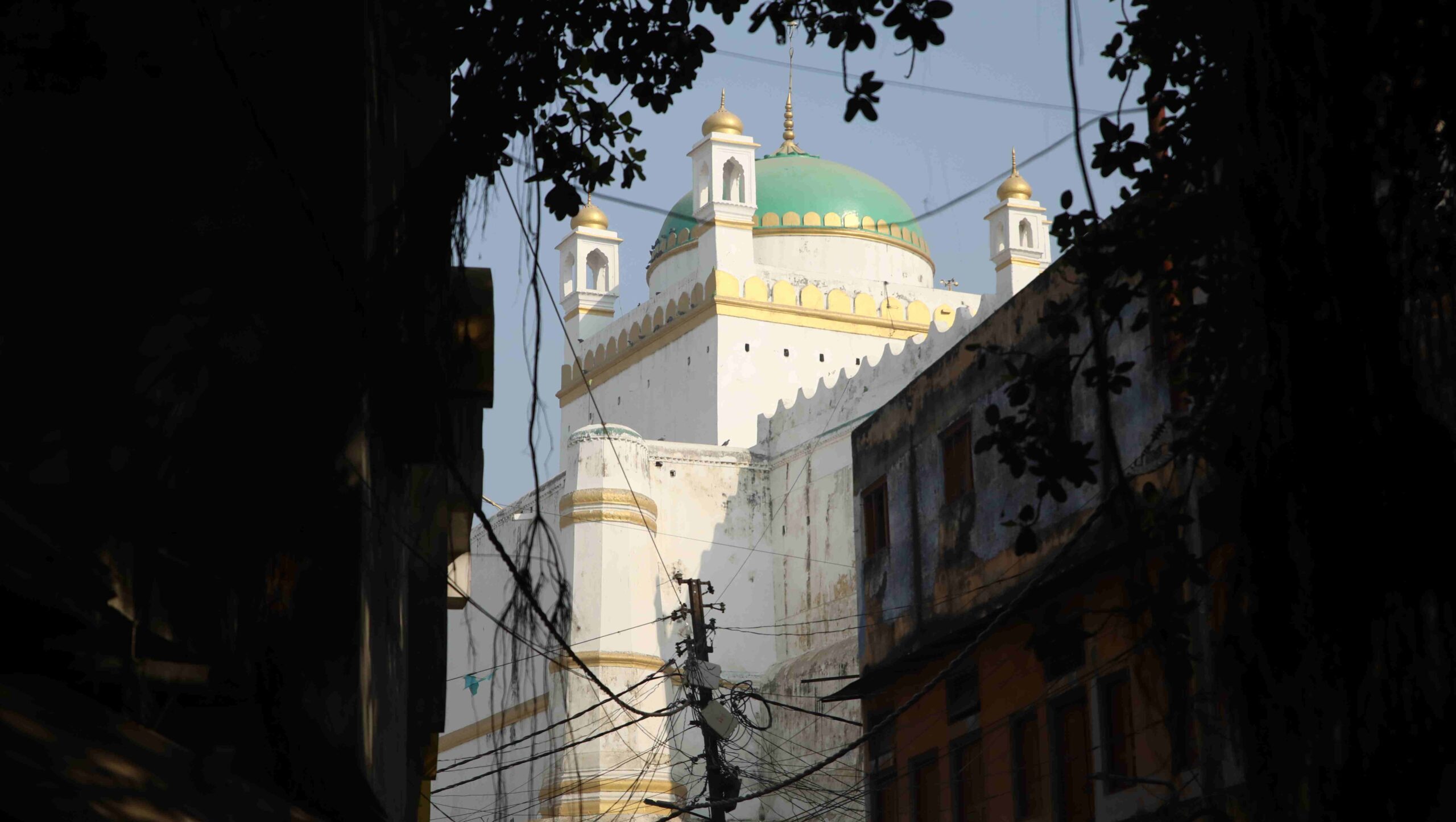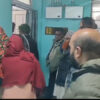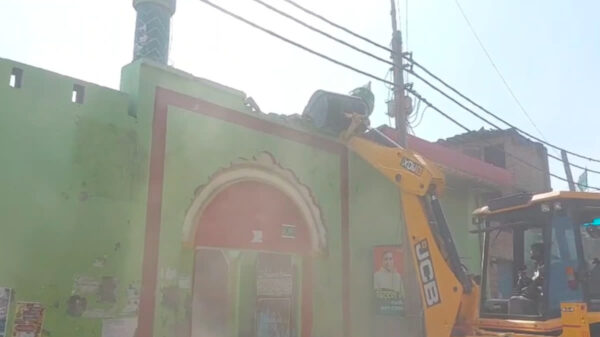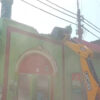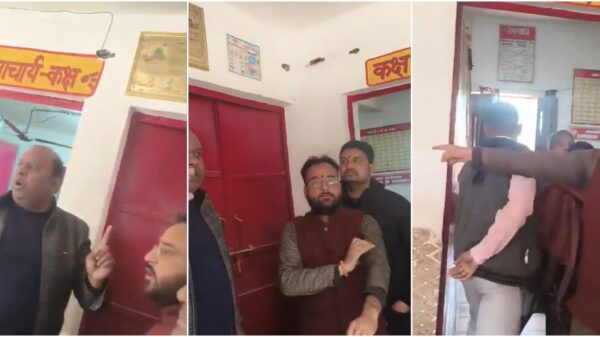The troubles for the Muslim community in Sambhal are far from over. In the Muslim-majority area of Khaggu Sarai, the discovery of a ‘centuries-old’ temple has led to administrative pressure on a nearby family to vacate their home.
According to the family, the district administration wants to demolish their house, claiming that it obstructs Hindu devotees from circumambulating the temple. While three sides of the temple are accessible through alleys, the fourth side—its rear—adjoins the family’s residence.
In the fear of forcefully being kicked out of their house, the family voluntarily demolished a portion of their house. The administration was yet not satisfied and demanded the demolition of the entire building. When the family refused to vacate, police took the head of the family, Mohammad Mateen in custody with the charge of disrupting public peace on the 16th of January.
The forty-year-old Mateen was a driver by profession. He was granted bail and released on January 24.
Last year on December 13, the Sambhal district administration claimed to have ‘discovered’ the long-shuttered Shri Kartik Mahadev Temple (Bhasma ShankarTemple) during an anti-encroachment drive in the Khaggu Sarai locality. Along with that, the temple was reopened for praying purposes.
It is believed that by 2005, all the Hindu population had migrated, thenceforward only prayers took place on special occasions.
According to the local residents, in the first week after the discovery of the ‘temple’, Hindutva groups mobilized crowds for regular worship. Despite that, the attendance gradually decreased. Locals claim that these groups have appointed a priest to oversee the temple’s upkeep and return home every evening.
Uzma Parveen, wife of Mohammad Mateen, told The Wire Hindi, “Ever since the temple was discovered, the district administration has been creating pressure on us. Firstly, they asked us to demolish our house’s balcony, claiming it encroached on ‘temple land’. In fear of facing consequences, we agreed to it. But that wasn’t the end of it. Later, Sambhal’s sub-divisional magistrate Vandana Mishra told us to tear down the wall adjacent to the temple. When we didn’t agree, she threatened us by saying that in that case, she would have to take the whole house. The pressure on us just kept increasing.”
“Despite repeated warnings from the administration, we didn’t agree to demolish our home. Then, on January 16, the police summoned my husband to the station and arrested him. They claimed that he was disturbing the peace and preventing Hindu devotes from offering prayers at the temple,” Uzma said.
She believes her husband’s arrest was meant to intimidate them into vacating their home.
Mateen was charged under Sections 126, 135, and 170 of BNSS at Nakhasa police station. Confirming his arrest, SDM Vandana Mishra told The Wire Hindi that “the accused was obstructing devotees entering the temple and harassing them.”
Uzma insists that Mateen purchased the land in 2002 with his own earnings, not through inheritance.
“He worked hard and bought this land himself. We have all the legal documents,” she claimed.
She also said that the house is mortgaged to a bank for a loan, adding to their financial distress.
“We have no other property. We are poor people. My husband is a driver. If they will demolish this house, where will we go?” Uzma said.
Mateen and Uzma have three children, the eldest being 16 years old and the youngest 10.
The Station House Officer of Nakhasa police station confirmed Mohammad Mateen’s arrest but denied any knowledge of the administration pressuring the family to demolish their home.
“I don’t have any such information about such threats, moreover my officers have issued no such warrants” he stated.
On December 13, Sambhal’s district administration claimed to have discovered a Hindu temple in Khaggu Sarai, under Nakhasa police station’s jurisdiction. Officials stated that after the 1978 riots, the Hindu population gradually migrated from the area, leaving the temple abandoned.
However, this claim has sparked debate among residents. “Where did the temple go that they had to ‘discover’ it? The temple has always been here,” said a local.
“After Hindus left the neighbourhood over time, no one remained to maintain or worship at the temple, so it was simply left unused.”
Uzma Parveen pointed out that a long-time Hindu family in the area still holds the temple’s keys.
“On special occasions, a family member comes to clean and maintain the temple. We have never had any issues with it, nor have we ever harmed it,” she said.
This incident is unfolding amid rising communal tensions in Sambhal.
On November 19, 2024, a petition was filed for a survey of the city’s Shahi Jama Masjid, which the court approved the same day. The survey was conducted overnight. On November 24, violence erupted during a second survey, resulting in five deaths and multiple arrests.
Following the unrest, authorities are constructing a ‘Satyavrat’ police outpost near Jama Masjid. These developments have left Sambhal in a state of unease and instability.
On January 21, Uzma Parveen wrote a letter to the judicial inquiry commission investigating the recent violence in Sambhal, urging a fair probe into their case.
In her letter, she stated that on December 5, 2000, her husband, Mohammad Mateen, purchased an old, dilapidated house from a man named Ram Sewak. They later constructed a new home on the site, where she now lives peacefully with her husband and children. She said that they regularly pay property taxes and that the house is mortgaged to Punjab National Bank’s Sambhal branch, with all legal documents held by the bank.
Uzma further alleged that the Sambhal district administration has been harassing their family for days. She claimed that on January 7, SDM Vandana Mishra personally visited their home and ordered them to demolish it within two days. According to Uzma, the SDM warned, “If you don’t tear down your house, we will demolish it forcefully through a bulldozer.”
Uzma further wrote that Mohammad Mateen’s arrest was a deliberate attempt to pressure their family and that administrative officials frequently visit their home to threaten and intimidate them. While Mateen has been granted bail, the family continues to live in fear.
However, the rediscovery of the temple has brought at least one benefit to local residents. Previously, there were no electricity poles in the surrounding area, forcing residents to draw power from distant poles. But immediately after the temple’s discovery, new electricity poles were installed in the area.







